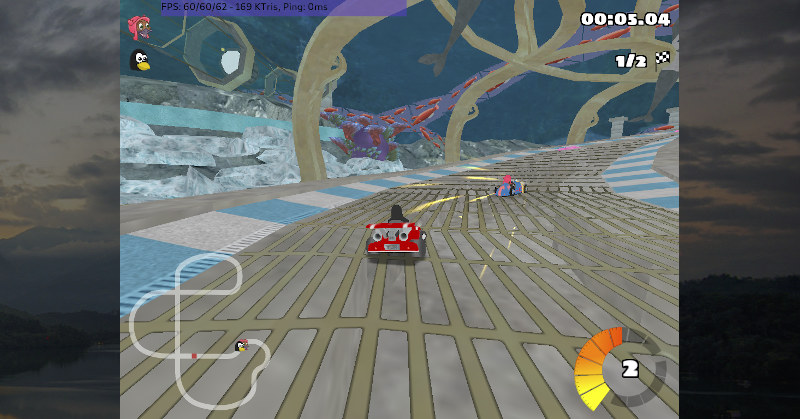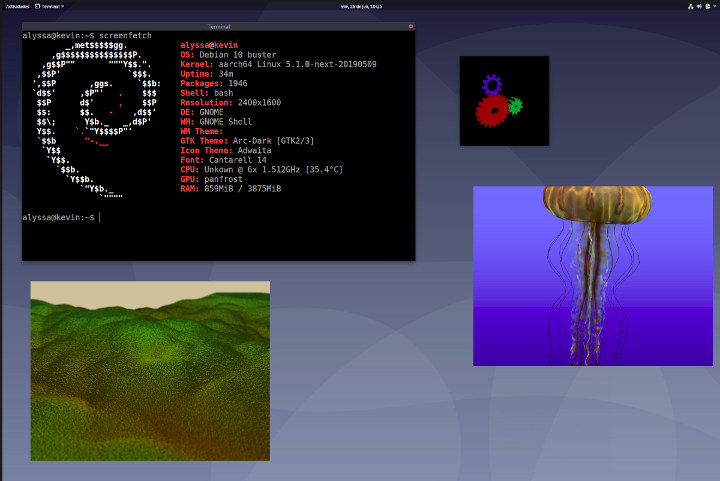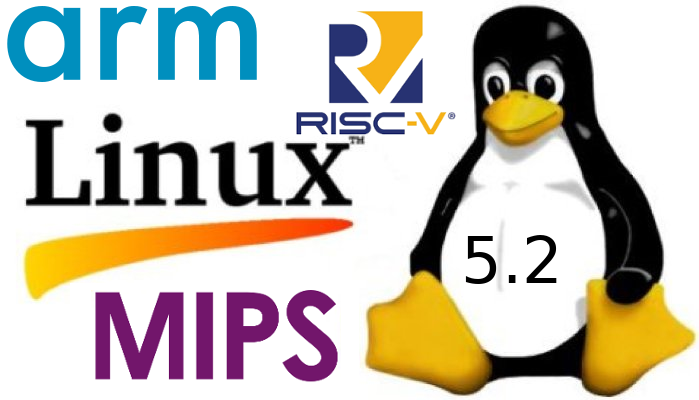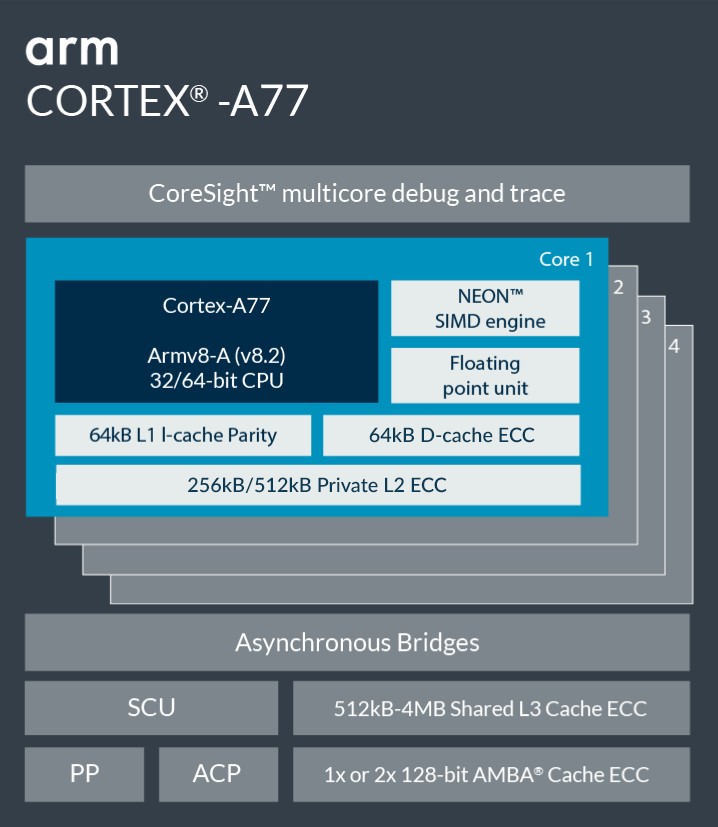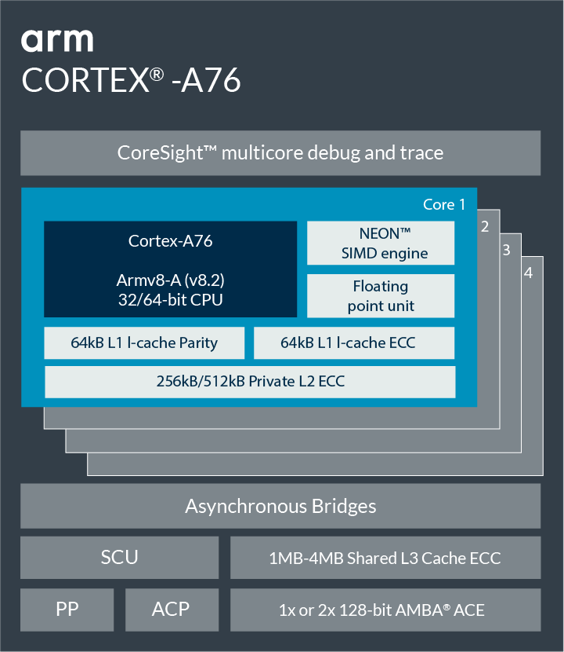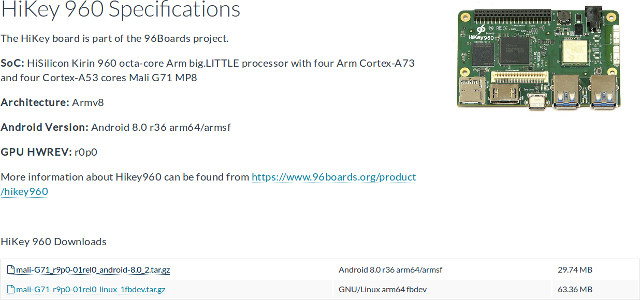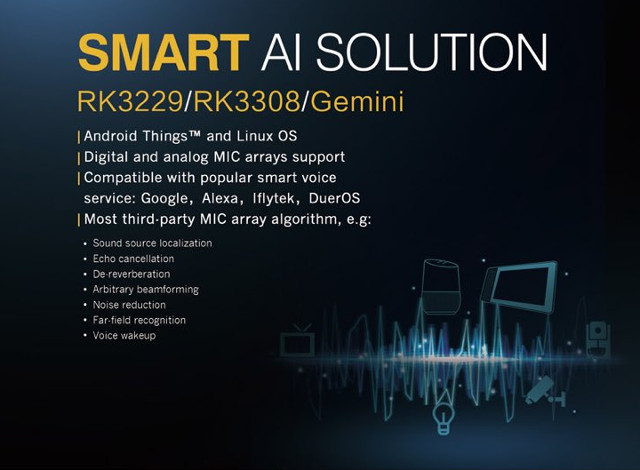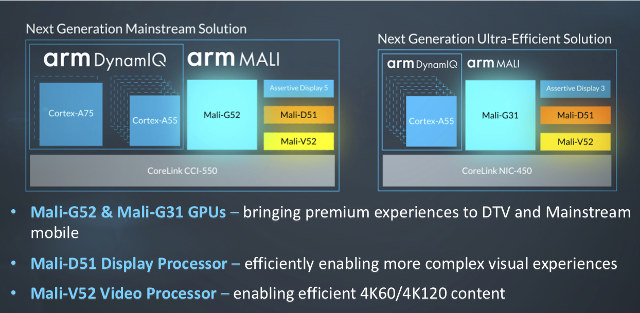Panfrost is the open-source driver being developed for Arm Midgard and Bitfrost GPUs. The first versions focused on support for OpenGL ES 2.0, but the more recent OpenGL ES 3.0 enables faster and more realistic rendering. The goods news is that Panfrost support for experimental OpenGL ES 3.0 has landed in Mesa according to a recent post on Collabora blog. Specifically, Panfrost now supports instanced rendering, primitive restart, uniform buffer objects, 3D textures, and multiple render targets (on Mali T760 and up) all of which are OpenGL ES 3.0 features. People who are not into graphics development may not know about the purpose of those features, but Alyssa Rosenzweig, a free software graphics hacker leading Panfrost, explains: … instanced rendering and primitive restart allow developers to write faster graphics applications, to render efficiently scenes more complex than possible in ES 2.0. … uniform buffer objects and 3D texture give developers […]
Rock Pi 4 SBC Runs GNOME & KDE Plasma using Panfrost Open Source GPU Driver & Wayland
One of the highlights of Linux 5.2 release was support for two new Arm Mali GPU open-source drivers, namely Lima for Mali-4xx GPU, and Panfrost for the Midgard Mali-T6xx/7xx/8xx series, and the more recent Bifrost Mali-Gxx GPUs. Collabora worked on the release and was donated a few Rock Pi 4 boards from Radxa directly to work on the project. For those who are not familiar, Rock Pi 4 board is powered by a Rockchip RK3399 processor with a Mali-T860MP4 GPU that is supported by Panfrost open source GPU driver. The company managed to have Debian 10 Buster running on Rock Pi 4 using 3D graphics acceleration thanks to Panfrost drivers on both GNOME and KDE Plasma desktop environment, as well as Weston Wayland compositer. The good news is that you can build Rock Pi 4 images by yourself using Debos with the following commands:
|
1 2 3 |
git clone https://gitlab.collabora.com/rockpi/rockpi4 cd rockpi4 docker run --rm --interactive --tty --device /dev/kvm --workdir /recipes --mount "type=bind,source=$(pwd),destination=/recipes" --security-opt label=disable godebos/debos --scratchsize=8G rockpi4.yml |
Alternatively, you could directly download […]
Linux 5.2 Release – Main Changes, Arm, MIPS & RISC-V Architectures
Linus Torvalds announced the release of Linux 5.2 last Sunday: So I was somewhat pre-disposed towards making an rc8, simply because of my travels and being entirely off the internet for a few days last week, and with spotty internet for a few days before that [*]. But there really doesn’t seem to be any reason for another rc, since it’s been very quiet. Yes, I had a few pull requests since rc7, but they were all small, and I had many more that are for the upcoming merge window. Part of it may be due to the July 4th week, of course, but whatever – I’ll take the quiet week as a good sign. So despite a fairly late core revert, I don’t see any real reason for another week of rc, and so we have a v5.2 with the normal release timing. There’s no particular area that stands […]
Arm Introduces Cortex-A77 CPU and Mali-G77 GPU
Arm unveiled its Cortex-A76 CPU and Mali-G76 GPU right before Computex 2018, so it should come as no surprise that the company decided to make announcements for the upgrades before Computex 2019 with the just introduced Arm Cortex-A77 processor, and Mali-G77 GPU. Arm Cortex-A77 Processor highlights: 64-bit Armv8 CPU with support for Armv8.1 and Armv8.2 extensions, as well as Armv8.3 with LDAPR instructions only Up to 4 processors per cluster Cache – 64KB L1 I-Cache / D-Cache, 256KB to 512KB L2 Cache, optional L3 Cache between 512KB and 4MB Improved performance for mobile and laptop devices enabling AAA-gaming, faster web-browsing and application launch time. Brings always-on, always-connected feature set of mobile to laptop devices Compatible with the newly announced Mali-G77 and machine learning (ML) processor. Compared to Cortex-A76, Cortex-A77 yields up to 20% improved IPC performance with similar efficiency. The new IP core is basically an upgrade over A76 with […]
Arm Announces Cortex-A76 CPU with Laptop-class Performance, Mali-G76 GPU, Mali-V76 8K VPU
Arm Cortex A75 based processors are only found in a few SoCs and devices, but Arm keeps on innovating, and they’ve now announced a new suite of of IP with Cortex-A76 CPU enabling 35 percent more performance, and Mali-G76 GPU with ML support and 30 percent higher efficiency and performance. SoC based on those new CPU and GPU IP will provide “laptop-class” performance, and the company also announced Arm Mali-V76 VPU with support for 8K video decoding and encoding. Arm Cortex A76 After Cortex A75, the Arm Cortex-A76 CPU is the second high performance processor core based on DynamIQ technology, and beside the 35 percent performance gain mentioned in the introduction, it also offers 40 percent improved efficiency, as well as delivers 4x compute performance improvements for AI/ML at the edge. Highlights of Cortex A76: Architecture – Armv8-A (Harvard) with Armv8.1, Armv8.2, Armv8.3 (LDAPR instructions only), cryptography and RAS extensions […]
Arm Releases Android / Linux Vulkan User Space Drivers for Mali GPUs (HiKey 960, Firefly-RK3288 Boards)
A little while ago, I wrote about Imagination’s PowerVR CLDNN Neural Network SDK and Image for Acer Chromebook R13, and some people looks into the Arch Linux Arm image and were pleasantly surprised to find Vulkan drivers, as it was the first Arm platform support Vulkan in Linux. It looks like there are now more Arm hardware supporting Vulkan drivers in Linux, as Arm has released binary user-space components for GNU/Linux and Android for development platforms featuring the Arm Mali Midgard GPU family, and – provided the GPU can handle it – supporting the following APIs: OpenGL ES 1.1 / 2.0 / 3.0 / 3.1 / 3.2, OpenCL 1.1 / 1.2 / 2.0, Vulkan 1.0, and RenderScript. Mali-G71 GPU is supported by Android 8.0 and Linux (fbdev) ARM64 drivers for Hikey 960 board, and Mali-T760 should be supported by Linux drivers (fbdev / wayland / X11) for Firefly-RK3288 board. Hikey […]
Rockchip Unveils RK3308 & Gemini Cortex-A35 Processors for Smart Speakers
Rockchip has posted a tweet about smart speakers, specifically about Midea AI speaker based on Rockchip RK3229, but the second image is what caught my eyes, as it reveals two new Arm Cortex A35 processor designed for “Smart AI solutions”, namely RK3308 and “Gemini” Processor. Rockchip RK3308 “mainstream” processor specifications: CPU – Quad core Cortex A35 processor GPU – TBD (maybe none?) Audio Integrated 8-ch ADC and hardware VAD (Voice Activity Detection) module Multi-channel PDM/I2S/TDM audio interface Rockchip Gemini “high-end” processor specifications: CPU – Quad core Cortex A35 processor GPU – Mali Dvalin MP2 GPU Audio – “high-end smart audio solution”; multi-channel PDM/I2S/TDM audio interface Video I/O – LCD screen & camera support Rockchip will provide support for Android Thing and Linux for the processors, as well as integration with MIC arrays boards and popular voice services such as Amazon Alexa, Google Assistant, Baidu DuerOS, and others. Arm Cortex A35 […]
Arm Introduces Mali-G52 & Mali-G31 GPUs, Mali-D51 Display Processor, and Mali-V52 Video Processor for Mainstream Devices
Arm has just announced four multimedia Mali IP blocks to be found in SoC for mainstream devices: Mali-G52 GPU with 30% faster performance over Mali-G51, and 3.6x better machine learning performance Mali-G31 GPU that’s 20% smaller, and 20% more efficient than Mali-G51, supports OpenGL ES 3.2 and Vulkan APIs Mali-D51 display processor 30% power saving, 50% lower latency compared to Mali-DP650 Mali-V52 video processor supporting 4K60/4K120 content Mali-G52 GPU Arm may have introduced Project Trillium for object detection and machine learning a few weeks ago, but the solution is better suited to premium devices, so the company’s Mali-G52 bitfrost mainstream GPU aims to fill the void for mid-range devices with up to 3.6 times faster machine learning capability over Mali-G51. Based on the first illustration, Mali-G52 will probably be coupled with DynamIQ Cortex A75/A55 processors. Other benefits of the new GPU include 30% more performance density, and 15% better energy […]


